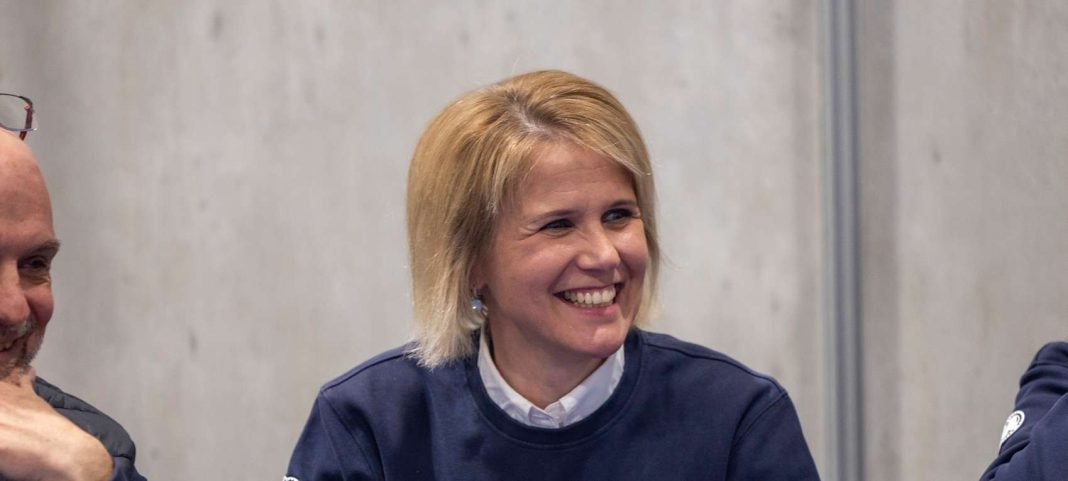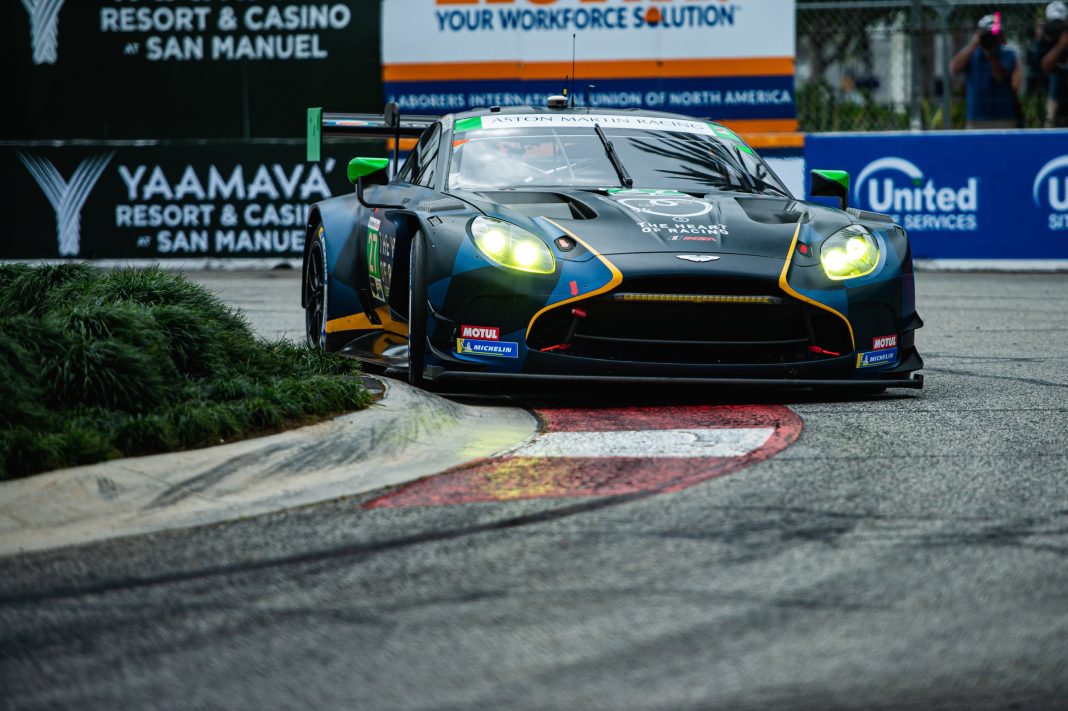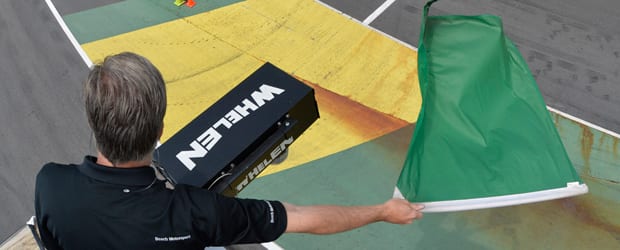For Emilia Abel, rallying isn’t just a job – it’s been her life for over two decades.
Written by WRC
4/11/2025
From running VIP programmes and organising events to sitting in the stewards’ room and now shaping the future of the FIA World Rally Championship as the FIA Road Sport Director, she has seen WRC from all angles.
Her mission? More cars at the top, a stronger grassroots pipeline, and a shared vision for WRC’s future.
2027: More cars, more competition
Big changes are coming. With WRC’s 2027 regulations given the greenlight last December, Abel is confident they will reshape the sport for the better.
“One of the great things about the WRC 2027 regulations, which we call “WRC27”, is that the platform is designed to offer technological flexibility and to accommodate any powertrain in the longer term,” she explains. “Basically, yes, the decision has been made that we will continue with internal combustion powertrains in the first few years. However, the platform is there to adapt to where the automotive industry is heading, which is exactly what we need today – the greatest possible flexibility.
“As for the WRC27, we are now in the phase of working on the final details together with the manufacturers, refining them, and giving them a final polish. The aim is to approve these final elements at the June World Motor Sport Council meeting.
“The objective is to have more cars in the top category. This is what these new regulations should bring, and I really hope they will. We are now at a crucial point because, as you know, rally cars are not born overnight. It takes time to develop and build them.
But it’s not just about the technology – the new regulations also aim to make WRC’s premier category more accessible. For the first time in years, private teams will have the chance to compete at rallying’s highest level without manufacturer backing.
“After many years, this is such a good opportunity for private teams to come in,” Abel says.
“You don’t actually need to be a manufacturer – you can enter as a private team.”
It’s a major shift – and one that applies to manufacturers too.
“At the same time, if you still want to come in as a manufacturer, you have a lot more flexibility,” she continues. “You don’t need to pick a specific model like a Puma or a Yaris – you can take whatever model you want to promote, scale it, and use it.
“So, in one way, things are becoming more equal because the basic features -size, mass, aerodynamics, etc. – will be similar for all the manufacturers. They won’t need to have a perfectly suitable car in their portfolio to join and perform; there’s more flexibility than ever before. That’s certainly one of the key targets.”
Beyond the cars: Rallying needs people
A stronger WRC isn’t just about the cars – it’s about the people who make it happen. From marshals and stewards to event organisers, rallying depends on a committed workforce. But in many places, new recruits are scarce.
“I think everyone involved in motorsport – whether organisers, officials, or anyone else – should take responsibility for bringing at least one new person into the sport,” Abel stresses.
“This has always been important: passing on your legacy to new people. I believe it’s more crucial today than ever before. I was an observer in the European Rally Trophy for a while, and there you see very different types of organisation and models in place.”
“In some ASNs, the club system works brilliantly for bringing in new people to participate in motorsport. For example, in Mahle Rally Nova Gorica, I saw a really nice initiative where they had licensed, trained marshals, but they also involved local people in marshalling. So, in one location, you’d have one properly trained marshal, and to support them, they could involve local people. This way, you not only get extra support but also gain backing from local communities and governments.
“A fantastic example from WRC is Sweden, where they work closely with local sports clubs – not just motorsport clubs, but also, for instance, an ice hockey or soccer club that is willing to contribute. In return, these clubs receive financial support, helping them function. They had more than 4,500 volunteers in Sweden, which is truly impressive.”
Abel is focused on working with ASNs to build stronger pipelines for officials, stewards, and event organisers – ensuring the sport doesn’t just grow but also sustains itself for the future.
“We are working closely with ASNs, sharing ideas on how to motivate and involve people. In countries where the club system exists, it’s much easier because there is often a generational link – someone’s parent was involved, so they follow along, maybe start marshalling just to be part of it. But in places without this structure, the only way is if someone has a real passion for motorsport or if a friend drags them along. Maybe after three times of just spectating, they get interested and want to be involved themselves.”
A united vision for WRC
For Abel, the biggest challenge – and the biggest opportunity – is getting WRC’s key players pulling in the same direction.
“Everybody involved in motorsport wants the same thing – we all want it to grow. We all want good, well-functioning championships, and this is what we are all working towards
“I would say my goal is for everyone to turn their heads in the same direction at the same time and keep looking that way. We all want the same thing, so let’s work together and make it happen.”







